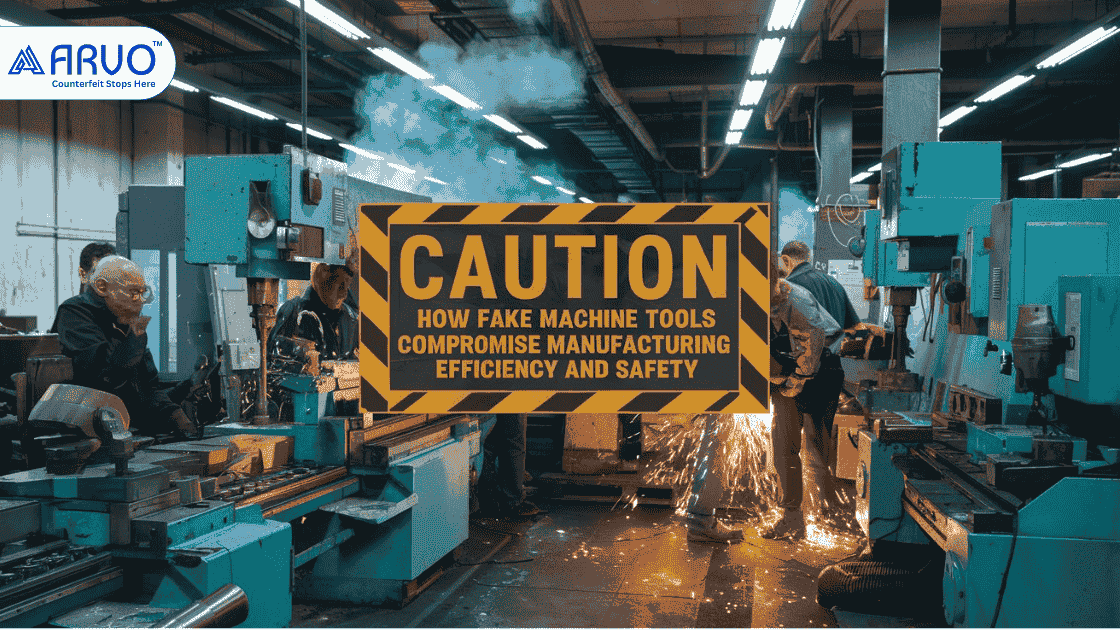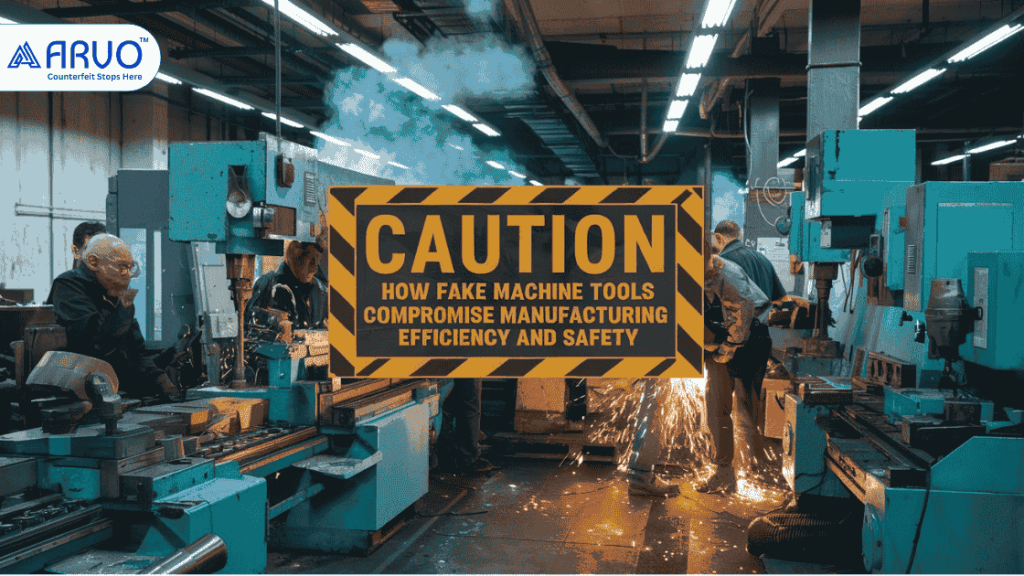
Counterfeit machine tools are a growing concern in the manufacturing industry, undermining operational efficiency and endangering worker safety. These fake industrial tools infiltrate supply chains, causing equipment failures, production delays, and safety hazards. With robust anti-counterfeiting solutions, manufacturers can protect their processes, safeguard their workforce, and ensure seamless operations.
What Are Counterfeit Machine Tools?
Counterfeit machine tools are fraudulent imitations of genuine industrial tools and components, often crafted to deceive buyers. While they may appear identical to the real thing, they lack the precision, quality, and durability required for industrial applications.
Common examples of counterfeit machine parts include:
- Bearings: Inferior materials lead to premature wear and mechanical failure.
- Cutting Tools: Substandard edges result in poor-quality machining and increased downtime.
- Hydraulic Components: Fake seals and fittings cause leaks and operational inefficiencies.
Counterfeit machine tools are the unseen threats crippling manufacturing operations from within.
These tools infiltrate the market due to their low cost and the difficulty of identifying them, but the long-term risks far outweigh the initial savings.

The Risks Associated with Counterfeit Machine Tools
The dangers of counterfeit tools extend beyond financial losses, affecting operational reliability and workforce safety.
1. Compromised Efficiency
Fake tools are often made with subpar materials and lack the precision required for seamless operation. This leads to frequent machine breakdowns, production delays, and reduced efficiency.
2. Safety Hazards
Counterfeit tools can fail under stress, causing accidents and injuries. For example, a fake bearing can break during high-speed operations, posing a serious risk to workers.
3. Financial Implications
Using counterfeit components increases maintenance costs and reduces the lifespan of equipment. Additionally, warranties are often voided when counterfeit parts are detected, leading to further expenses.
4. Reputational Damage
Defective products resulting from fake industrial tools tarnish a manufacturer’s reputation and erode customer trust.
When it comes to manufacturing safety, there is no room for compromise.
Spotting Counterfeit Machine Tools
Identifying fake tools is challenging, but vigilance and technology can help manufacturers avoid these pitfalls. Here are some tips:
- Examine the Packaging: Look for spelling errors, inconsistent logos, or signs of tampering.
- Check for Certifications: Genuine parts often come with quality assurance marks or labels.
- Inspect the Price: Unusually low prices are often a red flag for counterfeit goods.
The devil is in the details when it comes to spotting counterfeit tools.
The Solution: Anti-Counterfeiting Technologies
Leading manufacturers are leveraging advanced anti-counterfeiting measures to safeguard their tools and processes:
- Copy-Proof QR Codes: These secure codes allow instant verification of a tool’s authenticity.
- ARVO AI Labels: Intelligent labels powered by AI detect counterfeit tools and provide real-time authentication.
- Tamper-Proof NFC Labels: These advanced labels offer alerts if a product’s integrity has been compromised.
Technology is the frontline defense against counterfeiting in manufacturing.
How ARVO Can Help Protect Your Manufacturing Operations
At ARVO, we specialize in cutting-edge anti-counterfeiting solutions tailored for the manufacturing industry. Our Copy-Proof QR Codes, ARVO AI Labels, and Tamper-Proof NFC Labels ensure the authenticity of your machine tools and components, protecting your operations from counterfeit risks. By integrating our solutions, you can enhance supply chain transparency, maintain operational efficiency, and prioritize worker safety.
Contact ARVO today to learn how we can secure your manufacturing processes and help you stay one step ahead of counterfeiters.
FAQs
1. What are counterfeit machine tools?
Counterfeit machine tools are fake replicas of genuine industrial tools that fail to meet quality and safety standards.
2. Why are counterfeit tools dangerous?
They compromise efficiency, reduce equipment lifespan, and pose safety risks due to substandard materials and design.
3. How can manufacturers identify counterfeit tools?
By examining packaging, checking for certification marks, and using technology like QR codes and NFC labels for authentication.
4. What technologies help fight counterfeit tools?
Technologies like blockchain, AI-powered labels, and tamper-proof NFC labels play a crucial role in identifying and preventing counterfeits.
5. How does ARVO help combat counterfeiting in manufacturing?
ARVO provides advanced anti-counterfeiting solutions, including secure QR codes, AI labels, and NFC labels, to protect manufacturing equipment and processes.